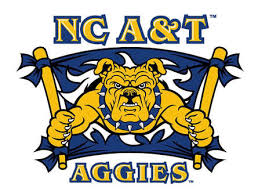Building professional learning communities: Social media, ed camps, and meetups

**The Edvocate is pleased to publish guest posts as way to fuel important conversations surrounding P-20 education in America. The opinions contained within guest posts are those of the authors and do not necessarily reflect the official opinion of The Edvocate or Dr. Matthew Lynch.**
A guest post by Madison Payton
Teachers sit in front of a sea of papers that must be graded. Curriculum needs to be mapped out and constantly revised to meet the needs of their scholars. We attend meetings about how to bring rigor, engagement, and how to create Common Core aligned assessments to prepare scholars for state exams which determines our effectiveness as teachers. If the day to day, week to week, month to month tasks do not frustrate you, then we are placed in the role as counselors, social workers, surrogate parents, mediators, coaches, and advocates; and this is not just for a couple of scholars but practically all of them. The system that was meant create learning communities has actually destroyed all that we have left as educators. Schools can’t possibly create and foster positive learning environments for scholars if the educators in front of them lack their own community to develop as effective and compassionate educators.
If we as communities are supposed to foster a positive culture among our scholars we must do the same for the teachers within these environments. The answer is sometimes difficult to find within the school because we can turn into the gossip kids in the cafeteria focusing more on the problems then actual solutions. As teachers we have to think outside of the box and seek professional learning communities outside of our schools so that we can be critical of our practices and find solutions that can be applied throughout our schools. Professional learning communities are essential to development of any educator because they enable the educator to engage and collaborate with a specific community that recurs in cycles of inquiry and actions that are grounded in research in order to better the academic and social development of the scholars they teach.
There are several ways we can build professional learning communities: searching on various social media platforms, professional meet-ups and content specific organizations, and summer PDs. Before you begin to spread your wings to build your network, make a list of specific objectives that incorporate your interests and needs that you wish to address from building and connecting with professional learning communities. Once objectives are crafted then create strategies and benchmarks that will help you reach those objectives. Having a plan is important when diving into the world of building your professional learning community; it is not about working harder, it is about working smarter.
Below are some ways teachers can effectively build their own professional learning communities.
Twitter is an amazing tool to use when you are trying to connect with educators from across the country. My wife showed me that if you are strategic you are always receiving a steady flow of information specific to your interests and needs. Some cool features of twitter are specific chats that occur weekly or monthly. Some of the popular ones are: #edchat, #edtechchat, #satchat, #engchat, #sschat, #digchat, etc. The more active you are in these chats usually means that you develop more connections that can build your professional learning community. You can also create lists specific to your interests and connect with like-minded educators. The benefit of having a list is that it allows you to specifically see what those educators are tweeting and allows better engagement. Again, the more specific you are about what you want and need the better these lists will be.
You can find more detailed information about each of these chats here: http://thejournal.com/articles/2013/09/23/13-twitter-chats-for-educators.aspx
Professional Meetup groups
These are the new rage because they are usually free and they connects educators with similar passions. It is important when building your professional learning community that you are engaging with people who are like you and who are not like you. The common ground is that we are in it to develop as educators and we can learn from different perspectives and methodologies of how to teach our scholars.
For more information go to www.meetup.com and search for groups of your interests. Here are my favorite groups:
Conferences and fellowships
These are great opportunities to be away with a group of professionals for a few days talking about real solutions to the problems that plague education. After these events are over you can stay in touch and reinforce best practices that were learned and maintain connections. These experiences also provide socio-emotional support that helps ensure the success and retention of good teachers like you. Programs are affordable or free depending on your interests and the competitiveness of the program. A brand new program that I have been recently accepted into is the Stanford University Hollyhock Fellowship. It was designed to give early career teachers the support needed to stay in the profession of education. The program is unique because it is competitive, free for participants, provides a $1000 stipend per year, and consists of yearlong professional development with mentors. This is a perfect place to grow your professional learning community because the fellowship already filters the applicant pool, which means fellows are passionate educators like you. After the conclusion of a fellowship or conference, your task is to just keep those contacts going and maintain your newfound relationships.
For more information about the program visit the following website: https://cset.stanford.edu/fellowships/hollyhock
Professional learning communities save our profession from dying and can renew educators’ commitment to the field. There is no better investment than diving into the world of self-reflection, challenges and exponential growth to be a better educator. After all, we can only be better educators for our scholars if we are actively engaged and learning just like we expect from those who are learning from us throughout the year.
Read all of our posts about EdTech and Innovation by clicking here.
_____________





